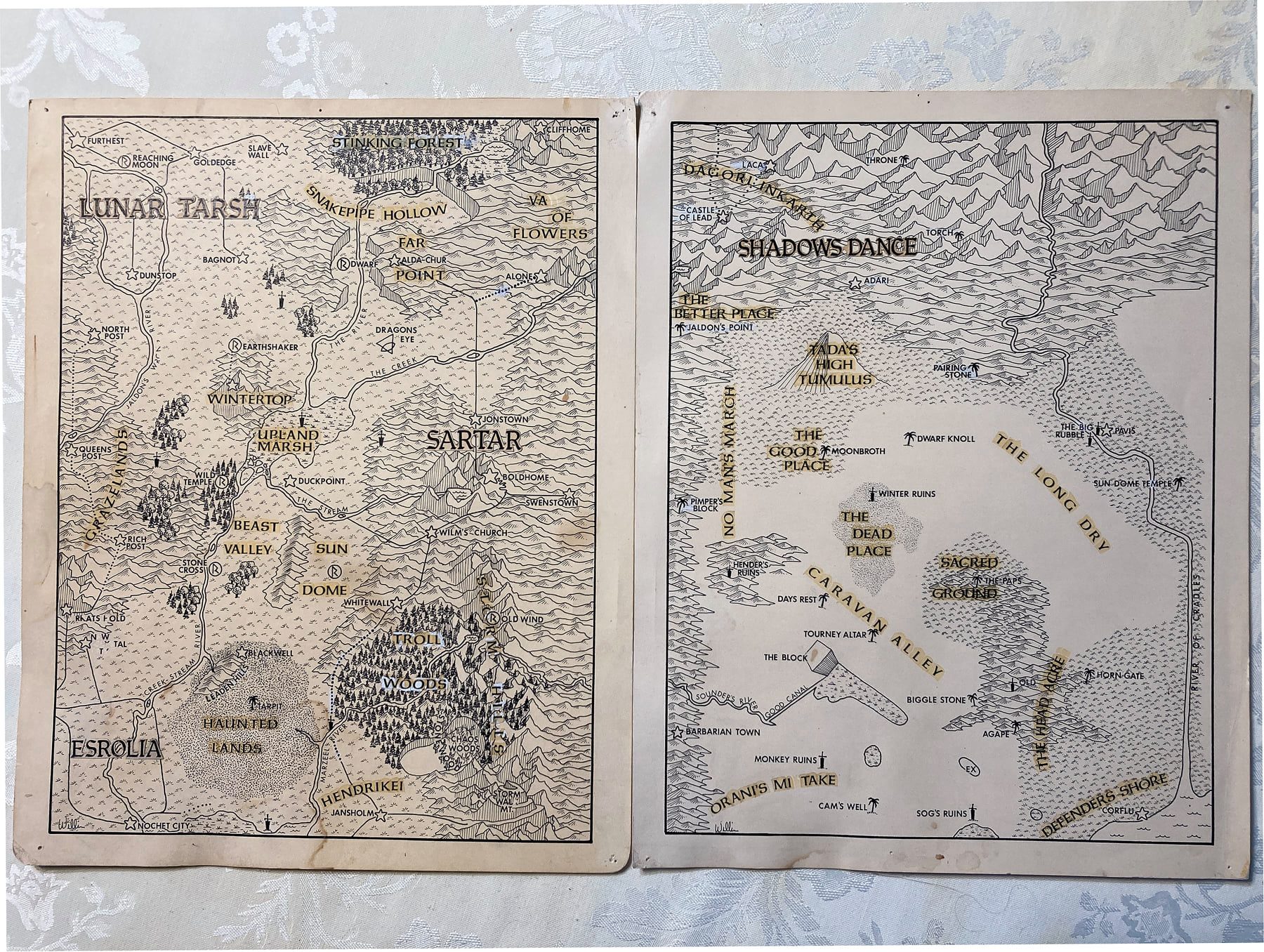"Jonstown" is named after the editor of Greg Stafford's original Glorantha board war game White Bear & Red Moon. Greg gave many of the playtesters of that game the honour of naming a place on the map. Other place names were made up from rather quirky origins: Greg was a mythologist, not a linguist.I do have a nitpick that has felt off to me, so maybe someone more familiar with the setting can explain...
"Jonstown?" In a Bronze Age, Mediterranean feel campaign world, there's an important settlement that sounds like a small town from 1950s Arkansas?
My colleague Rick Meints talks about the origins of various Glorantha place names here. (Below is the actual original map that debuted in RuneQuest 2nd edition, from the company archives. It's by William Church, who also gets a place named after him on the map)


